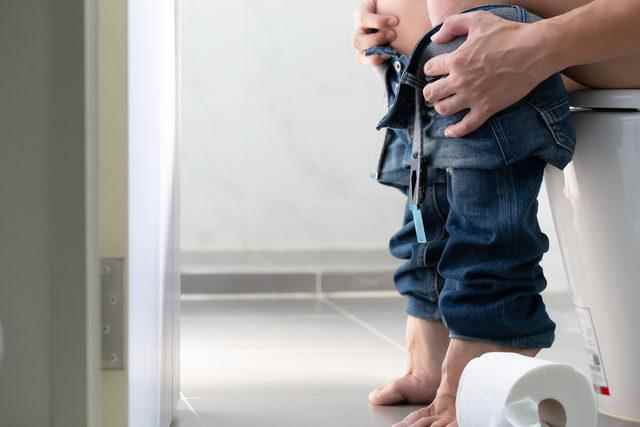Intestinal cancer, also known as colorectal cancer, originates in the large intestine, which consists of the colon and rectum. The lack of symptoms in the early stages of bowel cancer makes it difficult to diagnose this disease early. However, according to experts, a simple change in your toilet habits can be an important sign of bowel cancer.
DO NOT Ignore BLEEDING
Gastroenterologist Dr. “When symptoms do occur, they will likely vary and not be specific,” said Sara Mesilhy. Dr Mesilhy said: “Rectal bleeding is often the first and most obvious symptom of bowel cancer.
MIXED WITH PRESSURE
The most important reason to ignore these problems is the similarity with conditions such as hemorrhoids, also known as hemorrhoids. These lumps on your butt can also appear with blood, just like bowel cancer. But other symptoms of bowel cancer can help distinguish cancer from other problems.

89 PERCENT OF PATIENTS EXPERIENCED THE SAME SYMPTOM
According to the doctor, some persistent changes in bowel habits to watch out for include diarrhea, constipation, and changes in stool consistency. Symptoms may also include clues that some bowel cancer patients need to use the toilet more often. As for the prevalence of symptoms, blood in your stool is considered one of the most common. Rectal bleeding occurred in 89 percent of bowel cancer patients, according to research published in the Annals of the Royal College of Surgeons.
OTHER SYMPTOMS OF BOTTOM CANCER

Studying 183 participants, the research team found that the main symptoms were bleeding, followed by other changes in bowel habits. Experts recommend seeing a doctor if any bowel cancer symptoms persist for three weeks or more. Dr Mesilhy explained that other symptoms of bowel cancer can include:
- Persistent abdominal discomfort (such as cramping, gas, or pain)
- A feeling that the bowels are not fully emptied
- Weakness or fatigue
- unexplained weight loss
